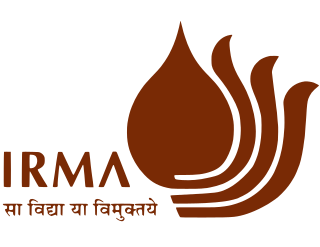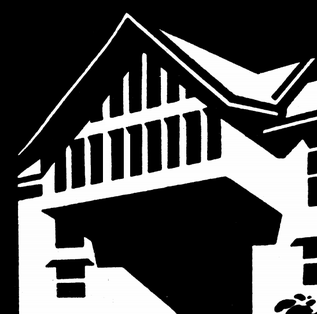
Jamia Millia Islamia is a central university located in New Delhi, India. Originally established at Aligarh, United Provinces during the British Empire in 1920, it moved to its current location in Okhla in 1935. It was given the deemed status by the University Grants Commission in 1962. Jamia Millia Islamia became a central university by an act of the Indian Parliament which was passed on 26 December 1988.

Delhi University, formally the University of Delhi, is a collegiate research central university located in Delhi, India. It was founded in 1922 by an Act of the Central Legislative Assembly and is recognised as an Institute of Eminence (IoE) by the University Grants Commission (UGC). Delhi University is one of the largest university systems in the world with over 400,000 students on its campuses and affiliated colleges. The Vice President of India serves as the university chancellor. The university is ranked 6th by National Institutional Ranking Framework 2024.

Miranda House is a constituent college for women at the University of Delhi in India. Established in 1948, it is one of the top ranked colleges of the country and ranked number 1 for consecutively seven years.
The Atheist Centre is an institution founded by Goparaju Ramachandra Rao and Saraswathi Gora (1912–2006) to initiate social change in rural Andhra Pradesh based on the ideology of Gandhism and atheism. Founded in 1940 at Mudnur village in Krishna district in Andhra Pradesh, India the Centre was later shifted to Vijayawada in 1947. As a member organisation of the Federation of Indian Rationalist Associations, the Atheist Centre endorses the Amsterdam Declaration 2002. The institution received the International Humanist and Ethical Union's International Humanist Award in 1986 for pioneering in the field of social work. After the Indian Ocean tsunami, the Atheist Centre worked with the Institute for Humanist Studies to provide aid to the victims of the disaster.
The Pakistan Institute of Development Economics is a post-graduate research institute and a public policy think tank located in the vicinity of Islamabad, Pakistan.
The Indian Institutes of Technology (IITs) practices affirmative action and offers reservation to the "backward and weaker sections" of the society that includes SC/ST/OBC-NCL/EWS/PWD/Girl candidates.
The Institute for Social and Economic Change (ISEC) is a social science research institute in Bangalore, India. Founded in 1972, it is the largest among the 27 institutions supported by Indian Council of Social Science Research (ICSSR).

Institute of Rural Management Anand (IRMA) is an autonomous institution and premier business school located in Anand Gujarat, India with the mandate of contributing to the professional management of rural organizations. IRMA was founded with the belief, borne out by Verghese Kurien’s work in the dairy co-operatives which revolutionized the dairy industry in the country, that the key to effective rural development is professional management. It is considered as the best business school in the Rural and Agricultural Business Management Sector of India.

The Centre for Development Studies (CDS), Thiruvananthapuram, Kerala, India is a premier Social Science research institute. It is also a higher education institution providing M.A. course in applied economics and PhD course in economics. The institute is internationally reputed for being a centre for advanced learning in economics. Its main objective is to promote research, teaching and training in disciplines relevant to development.
Central Scientific Instruments Organisation is a Chandigarh, India-based national laboratory dedicated to research, design and development of scientific, and industrial instruments. It is one of the constituent laboratories of the Council of Scientific and Industrial Research (CSIR), an Indian industrial research and development organisation situated at Chandigarh's Sector 30-C.

Dr. Vina Mazumdar was an Indian academic, left-wing activist and feminist. A pioneer in women's studies in India, she was a leading figure of the Indian women's movement. She was amongst the first women academics to combine activism with scholarly research in women's studies. She was secretary of the first Committee on the Status of Women in India that brought out the first report on the condition of women in the country, Towards Equality (1974). She was the founding Director of the Centre for Women's Development Studies (CWDS), an autonomous organisation established in 1980, under the Indian Council of Social Science Research (ICSSR). She was a National Research Professor at the Centre for Women's Development Studies, Delhi.
Vidyaben Shah was an Indian social worker and activist known for her work with children, women and the elderly in India. While she was already serving as Vice-President, she was appointed the first non-officio President of the New Delhi Municipal Council (NDMC) by Prime Minister Indira Gandhi in 1975. She has held several leading positions in the field of social welfare since the 1940s. Vidyaben Shah died at the age of 97 on 19 June 2020 at her residence in Delhi, her son Mihir Shah confirmed the news of Vidyaben Shah death.
Renana Jhabvala is an Indian social worker based in Ahmedabad, India, who has been active for decades in organising women into organisations and trade unions in India, and has been extensively involved in policy issues relating to poor women and the informal economy. She is best known for her long association with the Self-Employed Women's Association (SEWA), India, and for her writings on issues of women in the informal economy.

Lotika Sarkar was a noted Indian feminist, social worker, educator and lawyer, who was a pioneer in the field of women's studies and women's rights in India. She was a founding member of Centre for Women's Development Studies (CWDS), Delhi, established in 1980, and also Indian Association for Women Studies, established in 1982. Starting in 1951, she taught law at Faculty of Law, University of Delhi till 1983, and also remained the head of the law faculty; thereafter she taught at Indian Law Institute. She was the first Indian woman to graduate from Cambridge University, and later in 1951 she also became the first woman to receive a PhD degree in law from the university.

The Institute of Economic Growth (IEG) is an autonomous, multidisciplinary Centre for advanced research and training. Established in 1958, its faculty of about 23 social scientists and a large body of supporting research staff focus on areas of social and policy concern.
Towards Equality was the title of the report of the Committee on the Status of Women in India (1974–1975). This 1974 document is said to lay the foundation of women's movement in independent India, highlighting discriminatory sociocultural practices, political and economic processes. The findings of the report reopened the women's question for government, academia and women's organisation. Its authors included Vina Mazumdar and Lotika Sarkar, who later founded the Centre for Women’s Development Studies in Delhi.
Mary Braganza, RCSJ, popularly known as Karuna Mary, is an Indian Catholic religious sister of the Society of the Sacred Heart, and former principal of Sophia College, Mumbai. Sr. Karuna Mary formerly led 204 colleges managed by the Society of the Sacred Heart. During her tenure at Sophia College, in 1970, the institution started Sophia Polytechnic. In 2008 the Government of India awarded her the fourth highest civilian honour, the Padma Shri for her social contributions.
Rajeswari Sunder Rajan is an Indian feminist scholar, a professor in English, and author of several books on issues related to feminism and gender. Her research interest has covered many subjects such as of the pre and post colonial period, Indian English writing, gender and cultural issues related to South Asia, and the English literature of the Victorian era. She has also edited a series called the "Issues in Contemporary Indian Feminism", and "Signposts: Gender Issues in Post-Independence India". She has authored many books of which the notable ones are the Scandal of the State: Women, Law and Citizenship in Postcolonial India and Real and Imagined Women: Gender, Culture and Postcolonialism.

INFLIBNET Centre is an Inter-University Centre of the University Grants Commission (India) under the Ministry of Education (India). The organisation promotes and facilitates libraries and information resources for Indian further education. Its premises are in Gandhinagar, Gujarat.
Shalu Nigam is an Indian lawyer, feminist legal scholar, and author. She was the petitioner in the landmark case Shalu Nigam v. Regional Passport Officer, decided on 17 May 2016, which held that passports can be issued without requiring the name of the father.









